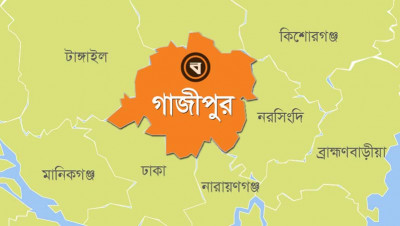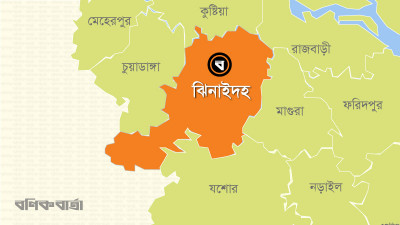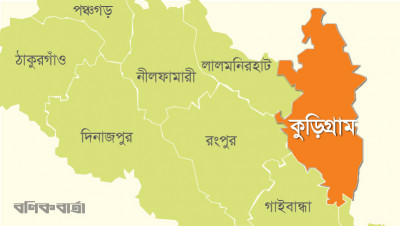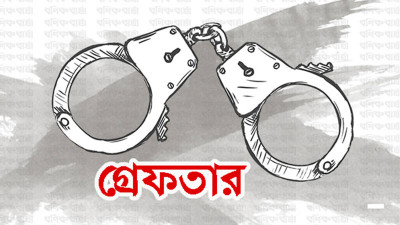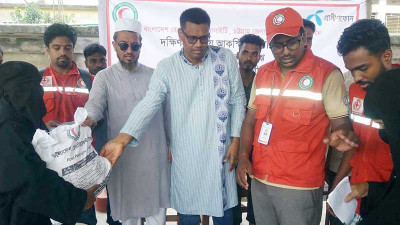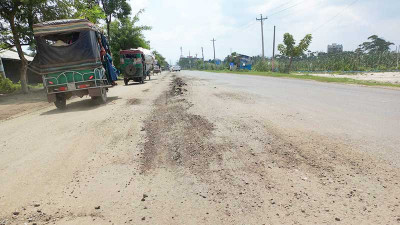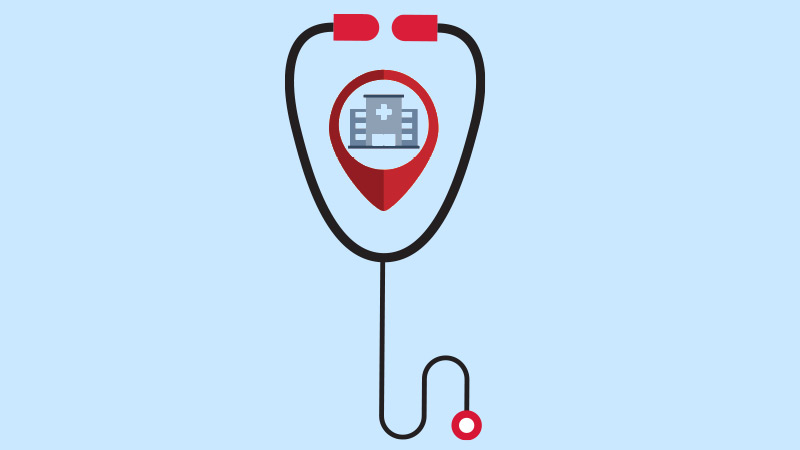 Bonik Barta illustration
Bonik Barta illustration A lot of Bangladeshis go abroad for treatment every year. They
spend a whopping $3.5 billion for this purpose, according to Bangladesh
Investment Development Authority (BIDA). But, experts believe the actual cost
is likely to be more. This mammoth figure is, however, not reflected in the
data provided by Bangladesh Bank. According to the central bank, only $1.7
million was spent on Bangladeshis’ treatment overseas in last fiscal year
(2022-23). The amount stood at $3.2 million in the previous fiscal (2021-22). That
means Bangladesh Bank is informed of less than one percent of the total cost of
treatment of Bangladeshis in foreign countries.
In December, last year, a top executive of a private bank had a
surgery at a hospital in Singapore. He had to pay $40,000 for the surgery. The
executive made the whole payment using a debit card issued against his foreign
currency account. Despite being a card payment, the spending could not be officially
shown as treatment cost.
“I had to face a lot of troubles if I wanted to pay the bill with
the approval of Bangladesh Bank,” the top executive told Bonik Barta on
condition of anonymity.
“I would have required to submit the recommendations of the
medical board and all the relevant files on treatment. I could not have
possibly gathered those. So, I made the full payment by the debit card,” he
said.
“The transaction was 100% legal, but it was not registered with Bangladesh
Bank as treatment cost. People will follow the rules if the process of Bangladesh
Bank approval is swift and easy. It is not all possible under the existing
system,” he added.
People, who receive treatment abroad, say they seldom pay their
bills in foreign currency through banks and financial institutions. And, in
most cases, people spend more than the amount endorsed in their passports.
There is no exact figure as to how many people go abroad for
treatment every year, health economists say. People receive treatment while travelling
on visit visa. Medical visa is only mandatory in case of surgery. It is estimated
that about 3 million people go abroad for treatment every year. The top
destinations for Bangladeshis are India, Thailand, Singapore, China, Japan,
Malaysia, South Korea, Qatar, United Arab Emirate, United States, United
Kingdom and Australia.
Many of the rich people use air ambulances for treatment abroad on
emergency basis. The users of air ambulances mostly fly to neighboring India and
Thailand and Singapore. Depending on the distance, a single journey costs from
Tk 3 million to 5 million. As per the sources at the Bangladesh offices of two
hospitals of India and Thailand, at least $29,500 is charged for transporting a
patient from Dhaka to Bangkok. The amount is more or less same for the South
Indian city of Chennai. The hospitals encourage their customers to pay in cash.
People also can make payment through banks.
As per Bangladesh Bank data, Bangladeshis spent $3.2 million through
banking channels in 2021-22 fiscal. In 2022-23 fiscal, the amount came down to
$1.7 million. In the first six months of the ongoing fiscal (2023-24), people
spent $1 million for treatment overseas.
On the other hand, BIDA statistics show at least 700,000
Bangladeshis go overseas for treatment and spend $3.5 billion. Health
economists and bankers, however, dispute the figure, saying that the actual
number of people and the amount of money are much higher. Analyzing the data
from BIDA and Bangladesh Bank, it can be determined that less than .05 percent
of the total cost went through banking channels.
Bankers and health economists argue that the statistics of BIDA
are based on information regarding treatment in India, Malaysia, Thailand and
Singapore. So, the actual cost is higher than the one mentioned by BIDA. People
receive treatment after going abroad on other visas. So, it will not be
surprising if the actual spending turns out to be three or four times more. Bangladesh
has yet to come up with an effective system to detect the spending on treatment
abroad. In most cases, banks do not have the track of the money spent for
overseas treatment. And, the approval process of this is very complicated. As a
result, most of the people are buying dollars from black market and money
exchanges, leading to the strengthening of illegal hundi business, an informal
way to transfer money from one country to another.
Syed Mahbubur Rahman, former chairman of the Association of
Bankers Bangladesh (ABB), told Bonik Barta, “People are meeting the treatment
cost through hundi transactions. Mainly, Bangladeshis go to India, Thailand and
Singapore. Currencies of these countries are available at any money exchange. This
is why people are taking cash or getting money through other means. Many are receiving
treatment with the money they get on travel quota. People need to produce a lot
of papers in order to pay for the treatment through banks. So, people avoid
banks. Simplification of the process would have benefited the country along with
the people seeking treatment. Hundi transactions would have come down too.”
Dr Syed Abdul Hamid, a professor at Institute of Health Economics
of Dhaka University, told Bonik Barta, “If the money is bought from banks,
Bangladesh Bank will have the information. It is not possible in cases of money
exchanges if they do not provide the right information. And, we have people taking
more than they are allowed. Another aspect is that credit card payments do not mention
sectors in which people are spending.”
“Health and education should be ensured from the own sources of
the state. Dependence on other countries is a loss to the country’s economy.
People’s health-related data are also transferred which may entice foreigners
to open healthcare institutions in Bangladesh,” he said.
A PhD research at the Institute of Health Economics of Dhaka
University shows that India is the most preferred country for Bangladeshis to
receive treatment. The number people seeking treatment in India is increasing
every year. Of the total number of patients, 21 percent go for cancer treatment,
18 percent with heart problems and 13 percent go for reproductive health. The
remaining people are going for problems related to orthopedic, gastroenterology,
liver, kidney, eye, ear and neurology.
Talking to Bonik Barta, Dr Enamul Haque, director general of
Health Economics Unit under Health Ministry, lamented the lack of information
about people seeking treatment abroad and said, “We are conducting a new research
on healthcare cost giving an idea on this issue. However, it will not provide a
clear picture.”
Public health experts say that the healthcare institutions got
bigger both in public and private sectors. The number of doctors has increased
and services have been expanded. But, people’s trust has not gone up
proportionately. At the same time, specialized services are not available in
every area of the country. People have long been complaining many aspects,
especially absence of proper diagnosis, cheating and negligence. This is why a
large segment of people are going abroad for treatment.
Frontiers, a Switzerland-based research publisher, released a
paper last year titled ‘Determinants of Bangladeshi patients' decision-making
process and satisfaction toward medical tourism in India’. It said that the
Indian hospitals get about 450,000 Bangladeshi patients every year. The paper
also mentioned that many people receive treatment there on other visas.
There is no scope for denying the fact that many people go
overseas for receiving treatment, said Health and Family Welfare Minister
Professor Dr Samanta Lal Sen.
“Bangladeshis are going abroad for treatment. Likewise, people
from other countries are coming to Bangladesh for treatment. We cannot stop
people from going abroad. But, the government is making effort so that they receive
treatment at home. Endeavors are there to enhance people’s trust in healthcare.
Our physicians are highly skilled,” he told Bonik Barta.
“We will try to ensure that people spend their money for treatment
through banking channels,” the minister added.

